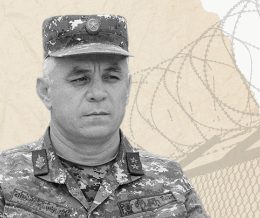
If You can’t Be an Optimist in Your Job, you’d Better Find Another: Advice by the Armenian Reporter from Spotlight
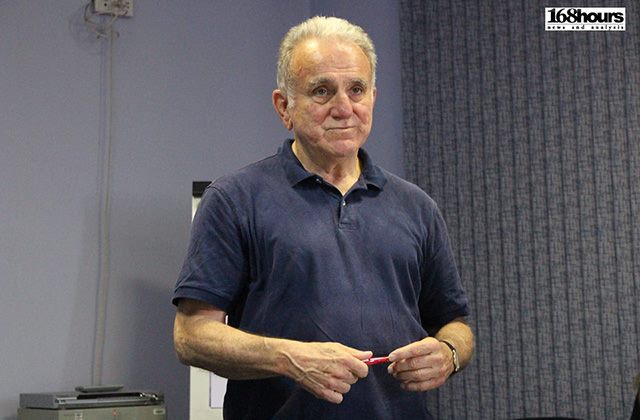
Upon invitation of Media Initiatives Center one of the most acclaimed investigative reporters of the U.S.—Stephen Kurkjian, recently met journalists, during which he touched upon investigative reporting, reflected to Spotlight, Oscar nominee, shared with his experience and gave valuable advice to the journalists.
Stephen Kurkjian worked for the Boston Globe for over 40 years, was the paper’s former Washington bureau chief and a founding member of its investigative Spotlight Team. Kurkjian has won more than twenty-five national and regional awards, including the Pulitzer Prize on three occasions.
The famous reporter firstly singled out two factors important for him in Spotlight, stating that the first one is the standard of excellency of reporting, showed in the movie, “The criterion, that any accusation, claim enshrined in that article was concrete and important. It’s the standard, which we set on the ground of Spotlight team, which we initiated in 1976. That standard was maintained in the period, when I was an ordinary reporter of Spotlight Team, then after I worked for 6-7 years as head of the Team. Main essence of our reporting was that we have worked around crucial topics. It wasn’t an ordinary criticism of the authorities, any official of a lower chain. Instead, we reflected to the service provided by our Government, which are of key importance in public life.”
In his words, Boston Globe Team mainly covered public transportation, hospitals, public education, environmental issues and by that gained public trust, “It’s important for the journalists to remember that they should reflect to important service implemented by the state, which they provide to their community.”
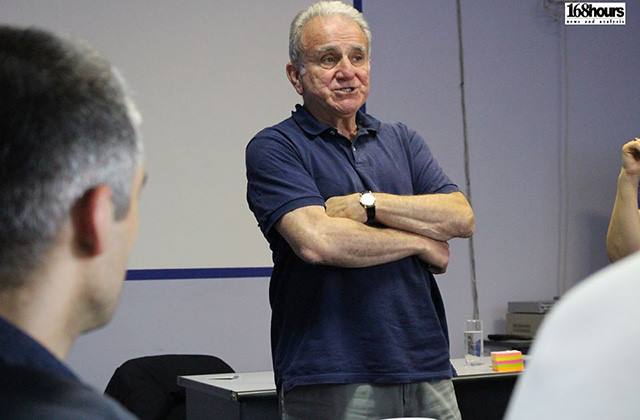
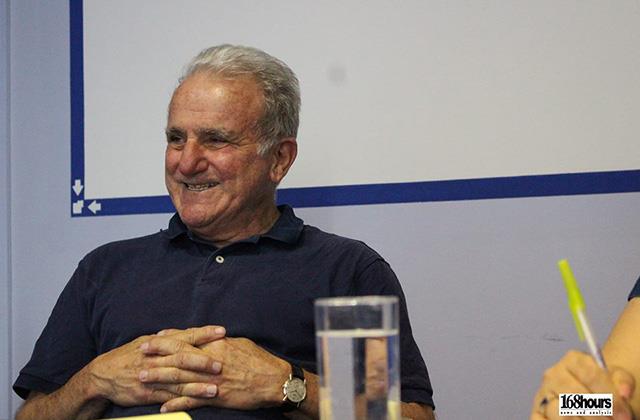
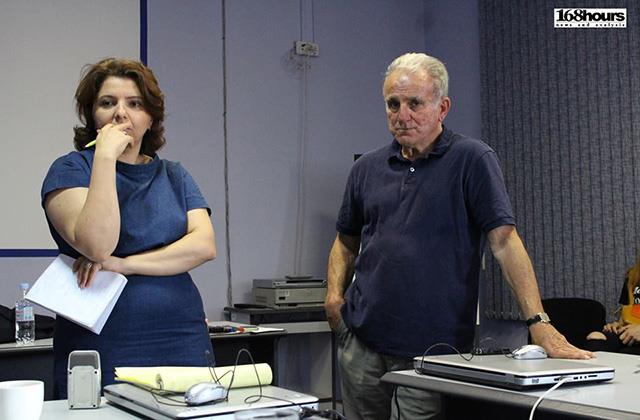
The second factor highlighted in the movie, according to Kurkjian, was the fact, that the hero was an Armenian. “The whole story is built around one hero— Mitchell Garabedian. And the hero, speaking to the Boston Globe reporter, says the one to uncover that scandal should have been from abroad, and Armenians are strangers there. He simply meant that out of nationality that person became a member of Boston authorities. And he asks the Boston Globe reporter whether he knows any other Armenian, he replies yes, Steve Kurkjian. If any of my friends blames me for not having a sufficient role in that movie, I’ll remind him, that the reporter pronounces my name better, than me,” he said.
In his words, it’s important that each of us asked to ourselves: how important are we, how are we distinguished from others not only as a reporter, but as an Armenian? “Our perseverance makes us different from others, we don’t surrender. The other factor, which is more subjective, is that we preach justice and geniality. If we scientifically prove why it’s so, it’s linked to the fact, that we are the first nation to adopt Christianity. Hundreds of years ago our generations were brought up and grew on Ten Commandments, were brought up to be preacher of what to do properly. I think profession of a journalist is natural for us: in which other field the idea of public good may be preached, than by this profession?”
The prominent reporter stressed that Armenia is a perfect country, in his words here the sins he observes in other countries lack here, “Streets are safe, here organized crime doesn’t reach to the level, which is existent in the USA. When in the Republic Square children are whispering something to one another, I’m sure, they don’t speak of selling drugs, however, I think we have a job to do, the Government should be made to reflect to contradictions available between the civil society and the Government.”
The Pulitzer Prize winner called on the journalists to do honest reporting, noting: it’s our job, being people out of the system, attach public attention to shortcomings of the Government, “We’re not novelists, and we need facts to formulate our say. If you want to show, that proper treatment isn’t implemented in psychiatric hospitals, then collect necessary facts and show it. In our days it’s possible to find facts around all the topics.
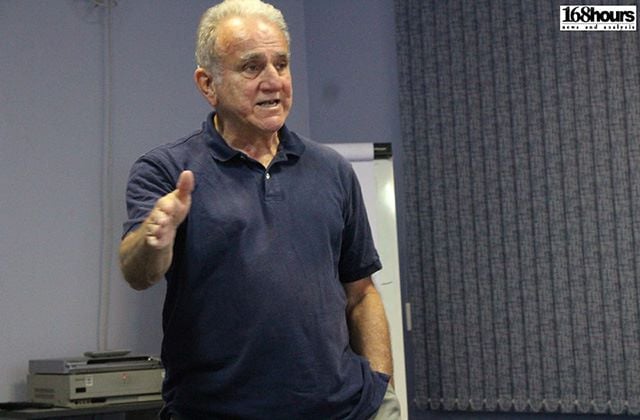
I call on my students to be observers, to follow what’s going on and read a lot. I also call on to listen to the voice of their heart and touch upon the topics, which are close to them. I’m not interested in people’s banking accounts, however, if they come and say that millions of dollars are laundered, then I’ll consider that story as well. However, if I need to think which topic to choose, I’ll study the material, which is close to my heart. I call on deal more with the documents, so that, what reporters gave, didn’t undergo criticism. You should be honest, fair.”
Kurkjian assured that through articles reporters should show not what is known to everybody, but show by facts, that this office doesn’t provide the service it’s meant for, “We don’t write for this or that Government. The direction of our reporting will be wrong if we think the Government should respond to it. Our deal is writing for people. As much we’ll introduce issues existent in the civil society to the public, we’ll lead to the fact that the public will speak. If you can’t be optimistic in your job, you’d better find another. Here your mind is as important as your heart.
I want you to believe deep in the heart, that you’ll bring changes not after one or a few articles, but you’ll come to a point in your articles, that the public will speak. In this case it’s not important what nationality is your reader. If by your coverage you reflect to sins in the Government, you lead to the point that the government will stand and speak.”
He stated that he never speaks resented or irritated, but always speaks by facts, “I do it prior to publishing. For instance, before publishing I say to that person, that as a result of my survey I found this or that shortcoming in your work. Leave the element of surprise, simply speak by facts, what you have revealed. I have always used that strategy and I write something positive about that person in my article as well.
By Ani Keshishyan and Razmik Martirosyan









